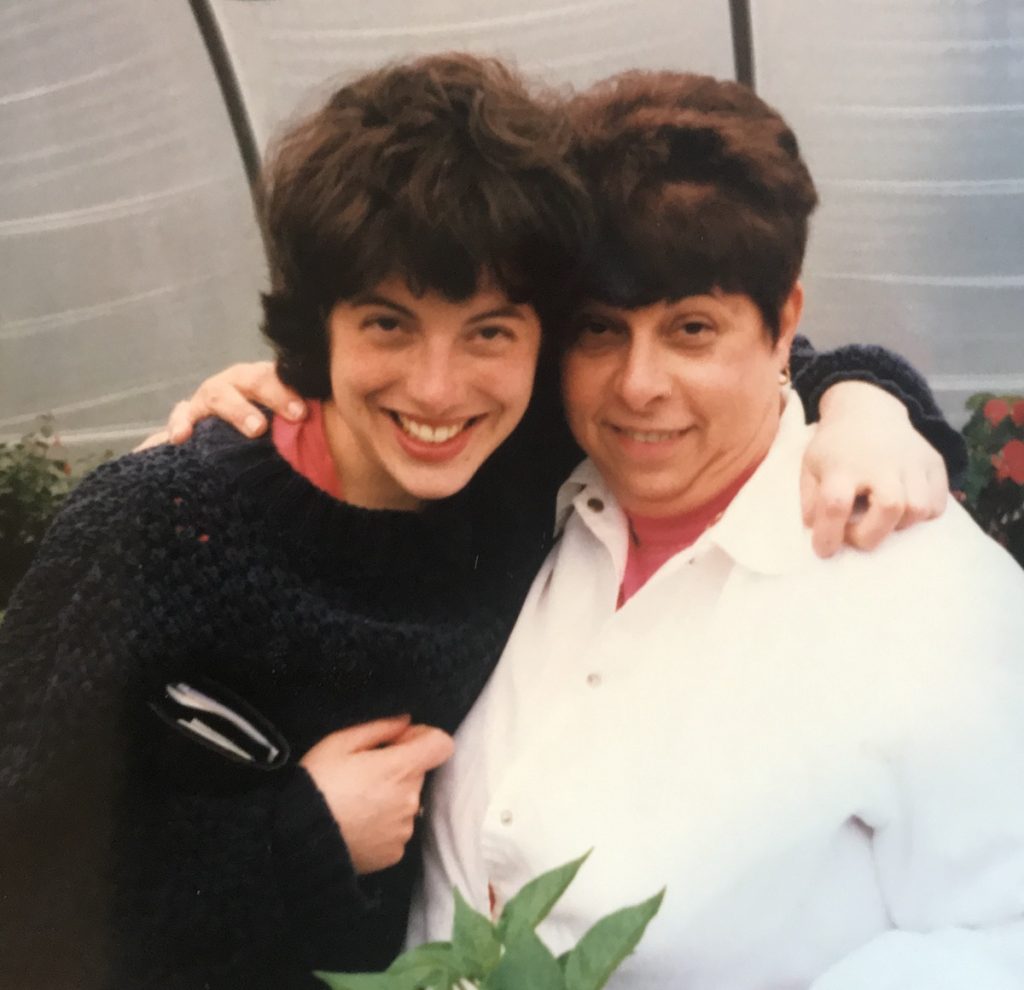Sister Louise looked like she’d bit into a frog. I’d just read my assignment out loud in her fifth-grade religion class.
Her stunned expression made me nervous. The kids’ faces also registered shock.
We were to write about how our parents reflected Catholic church teachings at home. My response was a literal, matter-of-fact report — missing entirely that I was expected to highlight the holiest, most wholesome and loving moments from home.
There were, indeed, lots of those.
My single mom rose early for work and made dinner every night. On winter evenings after supper, we’d twirl and glide across the ice rink at the park, warming up with hot chocolate. Every summer, she somehow found a way to take us on vacation, pay for swimming and piano lessons and explore the woods.
She worked hard to raise me and provide everything I needed, and pay the tuition at St. Wenceslas. The parish of brick buildings had one large school building including a church with stained glass windows of garnet red and sapphire blue, classrooms for kindergarten through eighth grade along shiny linoleum corridors perpetually scented with disinfectant.
Good King Wenceslas, alabaster and life-sized, stood sentry over the black asphalt parking lot where we had recess. For many years, I thought that statue high up on the brick building was God watching us play kickball and tag.
By every measure, she is a great mom. There. Steady. Loving.
Yet, I was a kid who could fixate on who wasn’t there — my dad — and how things at home fell short of the Eight is Enough family I saw on TV. All those brothers and sisters looked like so much fun.
En Route to Hell
So, how were my parents reflecting the Catholic lifestyle and teachings at home?
Well … Not exactly, I wrote. It’s just my mom and I. My parents are divorced and sometimes we argue about stuff and she gets mad. She swears sometimes. We say “Oh my God” which is wrong because we’re taking the Lord’s name in vain.
My mom remembers the phone call that day. My guess is Sister Mary Gerald, the principal, acting on Sister Louise’s concerns, gave her a ring.
“The nuns were so sure you were going to hell and I was pushing you along,” my mom recalls.
By sending her daughter to Catholic elementary school, my mom was already subjecting herself to judgment and shaming. The Catholic teaching is that only death can break a marriage, and that divorce is immoral because it breaks up the family, has a contagious effect and is a “plague on society.” Civil divorce can be “tolerated” under certain conditions.
I can’t imagine how painful it was for my mom to be part of a community that “tolerated” her difficult decision to split with my father to protect her child and herself. He was volatile — not violent — unpredictable, and unfaithful. Later, he and I made peace.
While reconciling with my dad was beautiful and healing, it was my mom who nurtured me through childhood.
Imminent Punishment
By the time I reached my grandparents’ house after school that day, my mom had gotten the call, which she shared with her mother. My grandmother asked me some tough questions. I told her what I’d said.
As she TSKed her disapproval, my cheeks were already hot with shame.
Public opinion mattered. What I did at school reflected on our family. And, surely, my grandmother was being protective of her own daughter.
My grandparents were good, strong, honorable, capable people, part of the Greatest Generation. They were World War II veterans and devout Catholics who regularly attended St. W’s. My grandmother had served as an Army nurse and then worked nights in the local hospital as a maternity nurse. My grandfather was a community leader, the full-time, elected mayor of our suburb outside Cleveland.
I was 10, clueless about the big picture — and certain I’d be in big trouble when my mom got home from work.
A Lesson in Unconditional Love
When she arrived, my mom shook off the whole thing. She chuckled. No big deal. My grandmother’s face showed her disapproval, but she held her tongue and dropped it.
Alone in our blue station wagon in my grandparents’ driveway, my mom said she was proud. She was pleased, she said, to be raising a daughter who would question authority and tell her truth. She wasn’t raising a parrot, but a thinking, questioning, honest human being.
That day, she respected me and honored who I was at my core: A truth-teller, come what may. She knows me inside and out. She knew I struggled because I longed for my dad and our family was atypical.
She made it crystal clear she loved me unconditionally. Still does.
I became a professional journalist and non-fiction writer, digging, searching, thinking and writing about truth every day.
Despite my many flaws, bad habits and quirks, I am strong. I am resilient. Of this I’m sure.
Dr. Meg Meeker, a pediatrician and author of six books on how strong parents can raise strong children, lists “Believe in Her” as the number one way in which parents can raise strong daughters.
“When your daughter senses you believe in her, she begins to believe in herself, and when she does, she can do anything,” wrote Dr. Meeker in a March 2017 post.
The most important, powerful birthright of any child is to feel loved beyond measure, no matter what. Seen. Respected. Honored.
That’s what I remember most from that day.
Just Fine — and Furious
My mom most remembers being furious.
The sister told her the nuns were concerned about my moral upbringing, certain my mom was leading me down the wrong path, if not straight to hell, then certainly a long imprisonment in purgatory.
My mom stood right up to her for both of us. She, as the parent, was in charge of my moral upbringing and thought it was going just fine.
So, respectfully: Butt out, sister.

shopping a favorite greenhouse
for plants on Memorial
Day weekend.
Mission Accomplished
My blood boils thinking of what my mom went through. I cringe at my accidental humiliation of her before a community that should have been so much kinder, more loving and accepting of her.
The most satisfying irony of that day in 1981 is that the nuns indeed did their job, just not in the way they’d apparently intended. They deserve my benefit of the doubt that they genuinely did what they felt was right and in my best interest.
They gave my mom an opportunity to teach me, not only that she believes in me, but about love.
My blood boils thinking of how judgmental people and divisive rules block someone’s reach for God and a loving community.
Love is more important than rules or judgment or church doctrine. God is Love. We are all loved.
I grew up knowing right from wrong, knowing I was loved. I shook free of the nuns’ judgment but never lost my faith, or belief that LOVE is above all else.
That’s my truth.
(Which makes me neither perfect nor holier-than-thou. Still struggling to put a lid on my swearing.)
So, my mom said when we compared memories of the incident in Sr. Louise’s fifth-grade religion class, What I tried to instill in you worked?
She knew the answer.
Yes, mom. You did a fine job. Actually, truth be told, a damn good job.


Once again Lisa – you are a wonderful writer. Thanks for sharing your memories.
Your writings amaze me! I enjoy reading them. Thanks for sharing!
You are so kind, Beverly! Thank you. I’m so glad you enjoy these pieces.
Being a “victim” of Catholic school, and knowing you, this made me chuckle. I know those strong Catholic roots and what they can do to a person. I think that’s where I got my sense of humor! Loved this and you, Lisa!!